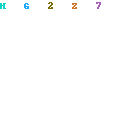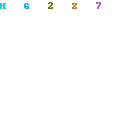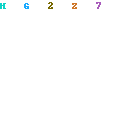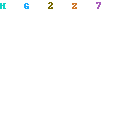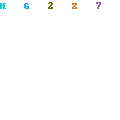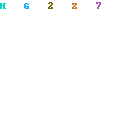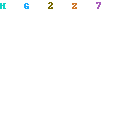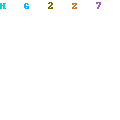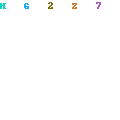Cell [Kindle Edition]
Stephen King (Author)Digital List Price:$9.99
Kindle Price:$9.99 includes free international wireless delivery via Amazon Whispernet
Editorial Reviews
Amazon.com Review
Witness Stephen King's triumphant, blood-spattered return to the genre that made him famous. Cell, the king of horror's homage to zombie films (the book is dedicated in part to George A. Romero) is his goriest, most horrific novel in years, not to mention the most intensely paced. Casting aside his love of elaborate character and town histories and penchant for delayed gratification, King yanks readers off their feet within the first few pages; dragging them into the fray and offering no chance catch their breath until the very last page.
In Cell King taps into readers fears of technological warfare and terrorism. Mobile phones deliver the apocalypse to millions of unsuspecting humans by wiping their brains of any humanity, leaving only aggressive and destructive impulses behind. Those without cell phones, like illustrator Clayton Riddell and his small band of "normies," must fight for survival, and their journey to find Clayton's estranged wife and young son rockets the book toward resolution.
Fans that have followed King from the beginning will recognize and appreciate Cell as a departure--King's writing has not been so pure of heart and free of hang-ups in years (wrapping up his phenomenal Dark Tower series and receiving a medal from the National Book Foundation doesn't hurt either). "Retirement" clearly suits King, and lucky for us, having nothing left to prove frees him up to write frenzied, juiced-up horror-thrillers like Cell. --Daphne Durham
From Publishers Weekly
Starred Review. It's probably a good idea not to use your cell phone while you listen to Scott's beautifully understated reading of terrormeister King's latest take on technology run amok: you might just toss it down the nearest storm drain. The excellent film actor (who catches the power of his late father George C. Scott's voice but smooths off the rough edges) adds an important element—quiet believability—to King's bloody, occasionally over-the-top story of a short but lethal electronic signal that seriously damages everyone in the world using a cell phone at that moment. The Pulse, as it comes to be known, turns idle chatterers into weirdly rewired killing machines. Scott makes the lead character—a comic book artist from Maine (where else?) named Clayton Riddell, who is in Boston with his phone off and in his pocket—a touching and surprisingly tough survivor, much like the nonpods in Invasion of the Body Snatchers. He also resists the temptation to make the "phoners" (those affected by the Pulse) sound unusually strange or dangerous—until their real motives become obvious. Simultaneous release with the Scribner hardcover (Reviews, Jan. 2). (Jan.)
Copyright © Reed Business Information, a division of Reed Elsevier Inc. All rights reserved.
Don't Use Your Cell Phone, June 8, 2008
By Donald Gallinger -
This review is from: Cell: A Novel (Hardcover)
The wonderful thing about King's new novel, Cell, is that he takes a relatively ordinary phenomenon of contemporary life and turns it into a shocking horror fest. This is King's great talent, and no one does it better. From the pet cemetary in the woods to the nice family doggie (who now has rabies), King populates his middle-class American landscape with familiar things that have now turned nightmarishly psychotic. In Cell, King jams an urban myth into the highest gear. What if cell phones didn't cause cancer? What if they did something much worse? What if they turned the user into a zombie killing machine? From the first page to the last, you're hooked. It doesn't matter if the reading calories are empty; you can't stop reading. That's why King, above everything else (and perhaps in spite of everything else) has remained the best selling author in the world. You can't stop reading him.
Donald Gallinger is the author of The Master Planets
You'll never think of those words: "Can you hear me now?" in quite the same way again..., January 26, 2006
By K. Corn "reviewer" (midwest, United States) -
Amazon Verified Purchase(What's this?)
This review is from: Cell: A Novel (Hardcover)
If for no other reason, I thank Stephen King for taking those five words which haunt tv commercials:, "Can you hear me now?" and turning the phrase into something more than merely annoying..and into the realm of the truly ominous. While it might seem obvious to some of us that cell phones are horrible little devices, it still takes a pretty talented writer to write a book about evil spread by cell phones...and to keep readers riveted the entire time. I was one of those readers. Like King, I refuse to have a cell phone, an "electronic leash". No thanks.
But I'm really digressing here. Back to The Cell . If you think you don't like King's "supernatural" or "horror" style, I'd urge you to give The Cell a chance. I read it from cover to cover in one sitting.
I can't say it is the best book he's written but it was still a fine read and had many of the trademarks of King's superior writing - excellent characterization, an unpredictable plot and just enough plausability to make me think, "WHat if?" What if there WERE some way to use cell phones to affect people's brains, to create insanity in our population, with results leading to the brink of civilization's collapse?
It is to King's credit that he not only raises these questions but kept me wanting to find out what happened next, to see what happened to Clayton, a guy who happens to be away from home when all hell breaks out. By the time it does, I was already intrigued by this guy, someone who was trying to figure out a way to curry his estranged wife's favor, who had the usual worries and imperfections of the average man. He was no hero, just an ordinary guy, just trying to get by, thinking about his career and the next step in his day, the usual stuff..when everything changes in an instant and he faces the type of test that he never could have foreseen, not in his usual routine..nope, not him. All aroud him, people are attacking each other and there doesn't seem to be a reason why. Clayton is forced to think quickly to save himself and others, without any inkling of WHY all this is happening...at least, not at first.
I won't go into any of the "symbolism" that I'm sure some critics will have a field day exploring, maybe something about how cell phones represent "terrorists" and the horror and uncertainty akin to the type that hit New Yorkers after 9/11, when normal life was suddenly a speck in the distance. A detailed talk about symbolism and metaphor is for someone else to write.
All I can add is that I found this book to be one heck of a good way to spend the day, allowing me to forget about the small irritations in my own life (the dishes in the sink, the piles of laundry) and to ignore the twinges of guilt about that for a bit longer. I needed an excuse to avoid that, feeling tired and burned out on that particular day.
I'm glad I put off my usual routine a bit longer because when I finally came up for air, bleary-eyed at 4 in the morning after reading the very last lines in the book, I felt oddly reinvigorated. I stayed up most of the REST of the night washing dishes and finishing laundry as my nerves settled (thanks, King) but didn't regret a moment of the time I'd spend deviating from my usual routine...well, okay, maybe a little...but it was still worth it.
